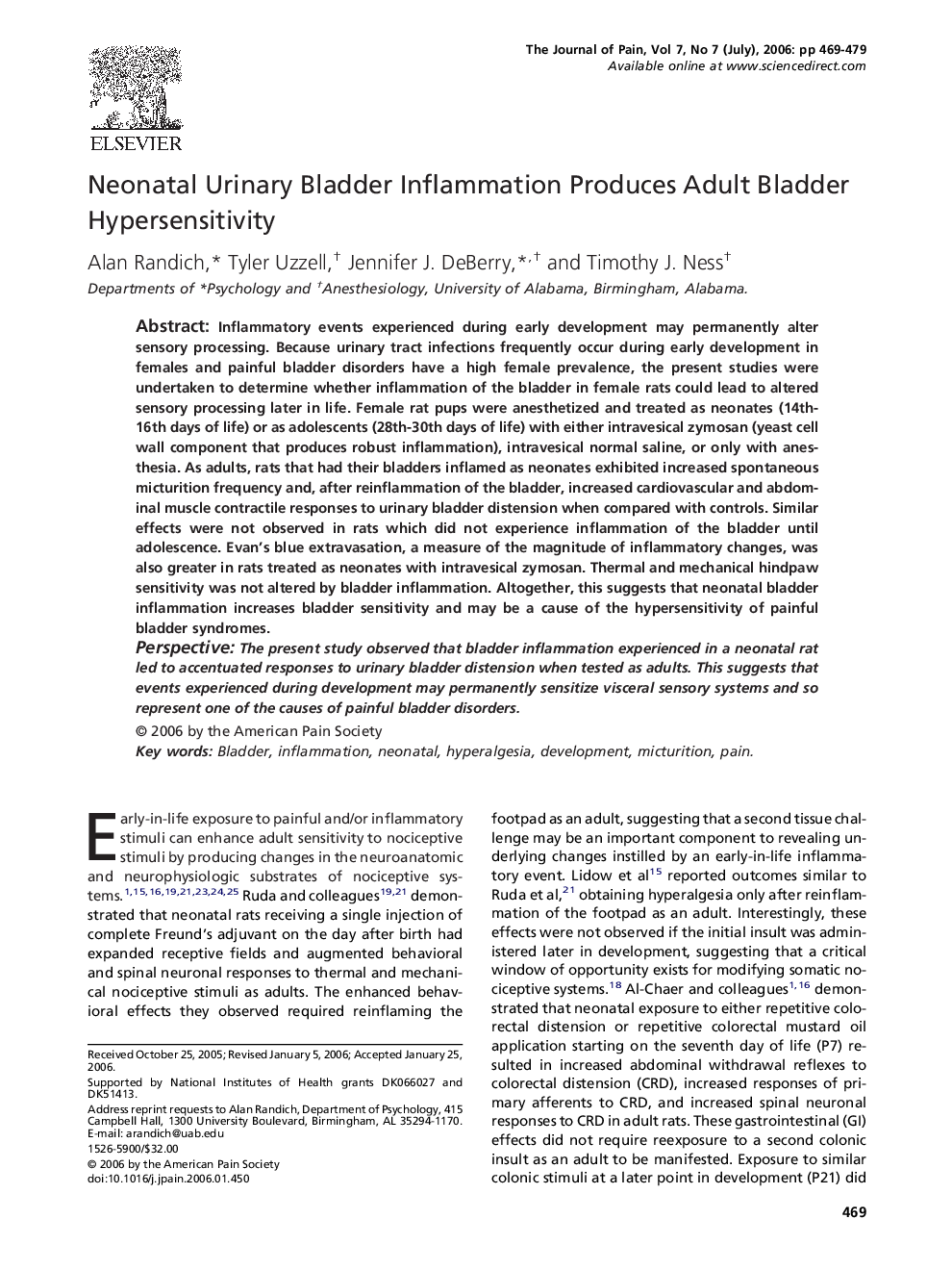| Article ID | Journal | Published Year | Pages | File Type |
|---|---|---|---|---|
| 2723895 | The Journal of Pain | 2006 | 11 Pages |
Inflammatory events experienced during early development may permanently alter sensory processing. Because urinary tract infections frequently occur during early development in females and painful bladder disorders have a high female prevalence, the present studies were undertaken to determine whether inflammation of the bladder in female rats could lead to altered sensory processing later in life. Female rat pups were anesthetized and treated as neonates (14th-16th days of life) or as adolescents (28th-30th days of life) with either intravesical zymosan (yeast cell wall component that produces robust inflammation), intravesical normal saline, or only with anesthesia. As adults, rats that had their bladders inflamed as neonates exhibited increased spontaneous micturition frequency and, after reinflammation of the bladder, increased cardiovascular and abdominal muscle contractile responses to urinary bladder distension when compared with controls. Similar effects were not observed in rats which did not experience inflammation of the bladder until adolescence. Evan’s blue extravasation, a measure of the magnitude of inflammatory changes, was also greater in rats treated as neonates with intravesical zymosan. Thermal and mechanical hindpaw sensitivity was not altered by bladder inflammation. Altogether, this suggests that neonatal bladder inflammation increases bladder sensitivity and may be a cause of the hypersensitivity of painful bladder syndromes.PerspectiveThe present study observed that bladder inflammation experienced in a neonatal rat led to accentuated responses to urinary bladder distension when tested as adults. This suggests that events experienced during development may permanently sensitize visceral sensory systems and so represent one of the causes of painful bladder disorders.
